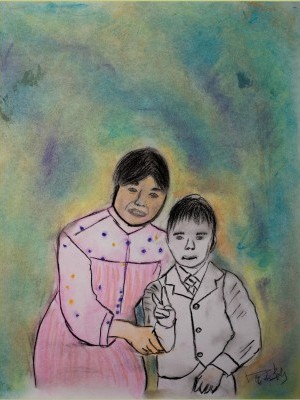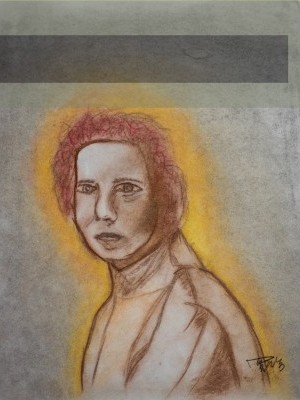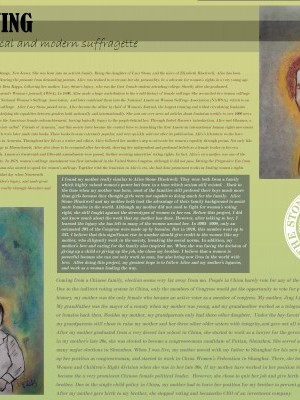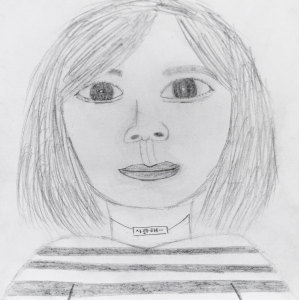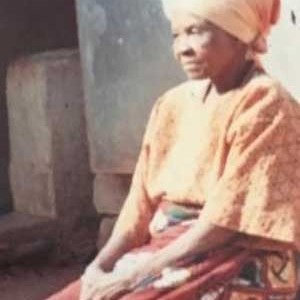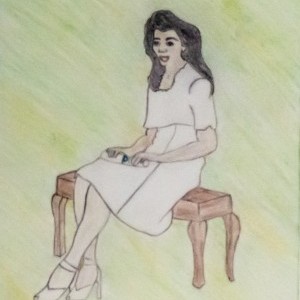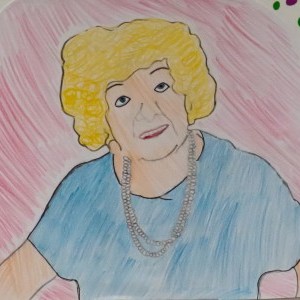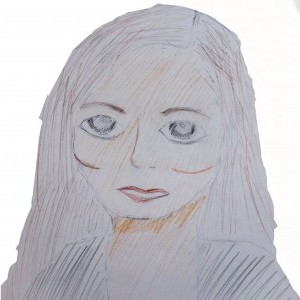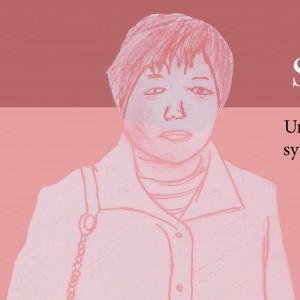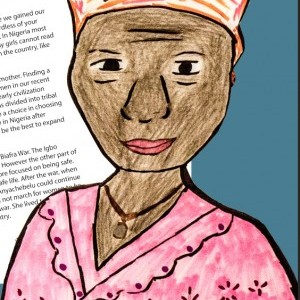Tina Luo
The Stony Brook School | Stony Brook, NY | 9-12th Grade
Inspirational Family Member
My Mother
Coming from a Chinese family, elections seem very far away from me. People in China barely vote for any of the representatives in the Congress. Due to the indirect voting system in China, only the members of Congress would get the opportunity to vote for presidential elections. In my family history, my mother was the only female who became an active voter as a member of Congress. My mother, Jing Lin, was born into a mayor’s family. My grandfather was the mayor of a county when my mother was young, and my grandmother worked as a telegrapher, which was a very decent job for women back then. Besides my mother, my grandparents had three other daughters. Under the male-favoring atmosphere in China in the 70s, my grandparents still chose to raise my mother and her three older sisters with integrity, and gave all they had for them.
After my mother graduated from a very decent law school in China, she started to work as a lawyer for the government. After giving birth to me, in my mother’s late 20s, she was elected to become a congresswoman candidate of Futian, Shenzhen. She served as a congresswoman and voted for many major elections in Shenzhen. When I was five, my mother moved with my father to Shanghai for his new job. There, my mother had to give up her position as congresswoman, and started to work in the China Women’s Federation in Shanghai. There, she became the youngest director of Women and Children’s Rights division when she was in her late 30s. If my mother had worked in her position for a longer time, she would have become a very prominent Chinese female political leader. However, she chose to quit her job and give birth to my brother. Due to the single child policy in China, my mother had to leave her position for my brother to prevent getting caught by the government. After my mother gave birth to my brother, she stopped voting and became the CEO of an investment company.
Historical Figure I Admire
Alice Stone Blackwell
Alice Stone Blackwell was born on September 12, 1857 in Orange, New Jersey. She was born into an activist family. Being the daughter of Lucy Stone and the niece of Elizabeth Blackwell, Alice had been immersed in the culture of feminism since she was young. Bearing the pressure from demanding parents, Alice was trained to overcome her shy personality and to be an advocate for women’s rights from a very young age. She had earned a bachelor’s degree, Phi Beta Kappa, from Boston University, following her mother Lucy Stone’s legacy, who was the first female student to attend the college.
Shortly after she graduated, Alice Stone Blackwell became the assistant editor for her mother’s Woman’s Journal (AWSA). In 1890, Alice made a huge contribution to the world history of female suffrage. She reconciled two women suffrage movements, the American Woman Suffrage Association and the National Woman’s Suffrage Association, and later combined them into the National American Woman Suffrage Association (NAWSA), which was an organization that no longer excluded African American women’s suffrage. After Lucy Stone passed away, Alice became the editor-in-chief of Woman’s Journal, the longest running and widest circulating feminist newspaper. There, she spent most of her life realizing and helping the equalities between genders both nationally and internationally. She sent out articles about feminism weekly to over 1000 news editors. She created numerous reasonable arguments for American female enfranchisement, leaving an intellectual legacy to the people behind her.
Through Isabel Barrows’ introduction, Alice met Ohannes, a theology student from Armenia. Together, they created a society called “Friends of Armenia,” and this society later became the central force for launching the first American international human rights movement. They also translated many Armenian poems, which were later made into books. These books became extremely popular and were quickly sold out after their publication. Alice’s literary works have expressed many ideals of activism and women’s social status in Armenia. Throughout her life as a writer and editor, Alice followed in her mother’s footsteps to advocate for women’s equality through poems. Not only like her mother, who was the first woman to graduate from college in Massachusetts, Alice also chose to be cremated after her death, showing her independent and profound beliefs as a female leader in her era.
Alice’s era was full of civil rights movements. Just before her birth, America’s fourteenth and fifteenth amendments were passed, further securing minorities’ voting rights. In fact, Alice’s own mother was one of the major advocates who brought these amendments into reality. In 1878, the women’s suffrage amendment was first introduced in the United States Congress, although it did not pass. During the Progressive Era from 1900-1940, birth control clinics were opened, and Jane Addams also started to speak for women’s suffrage. Together with the feminists in Alice’s era, she wrote prominent works in leading the women’s rights movement. Fortunately, Alice had lived long enough to see the day when the Nineteenth Amendment was passed. Alice successfully followed her mother’s legacy and made great contributions in bringing the women’s suffrage amendment into reality through literature and news industry.
What the Project Means to Me
I found my mother really similar to Alice Stone Blackwell. They were both from families which highly valued women’s power, but were born during a time in which sexism still existed. Back to the time when my mother was born, most of the families still preferred boys much more than girls because they thought girls were not capable of doing much for the family. Alice Stone Blackwell and my mother both took advantage of their family backgrounds to assist more females in the world. Although my mother did not need to fight for women’s voting rights, she still fought against the stereotypes of women in her era. Before this project, I did not know much about the work that my mother has done. However, after talking to her, I learned the legacy she has left to many of the women around her. From 2003-2008, only an estimated 20% of the Congress were made up by females. But in 2010, this number went up to 25%. I believe that this significant rise in number should give credit to the women like my mother who diligently work in society, breaking social norms. In addition, my mother’s love and care for my family also inspired me. When she was facing the decision of giving up a child or giving up her job, she chose my brother. I believe that a woman is powerful because she cannot only work as man, but also bring new lives in the world with love. After doing this project, my greatest hope is to follow Alice and my mother’s legacies, and work as a woman leading the way.
Explore the Archive
More From This Class
Click on the thumbnails below to view each student's work.Deadline Extended
There's still time to join Women Leading the Way.
Become a part of our storytelling archive. Enroll your class today.
Join the Project

